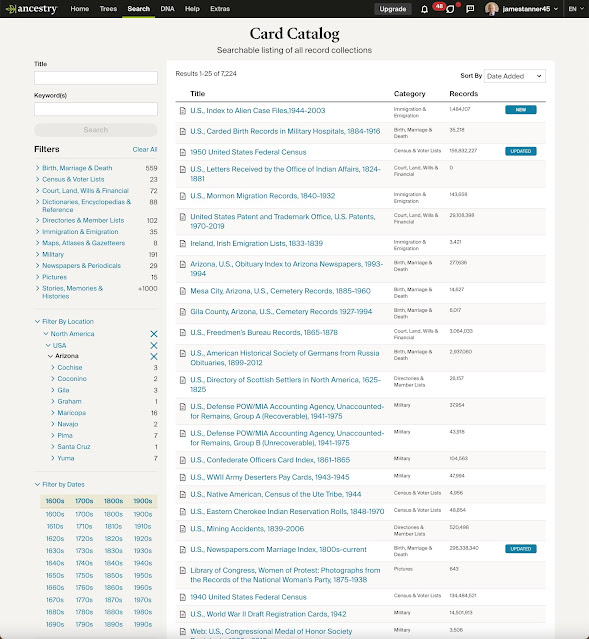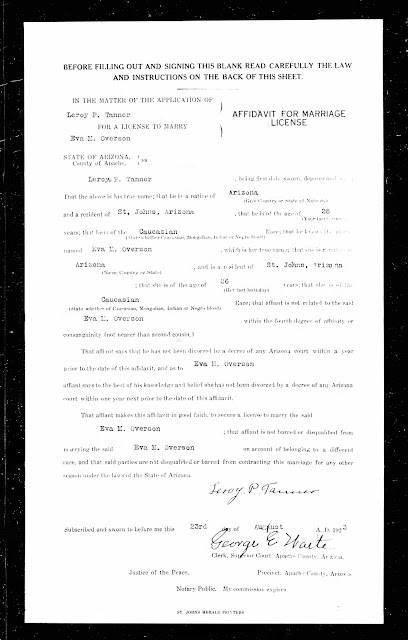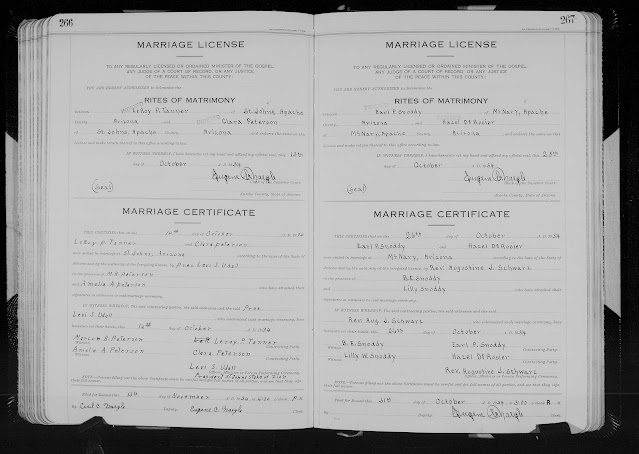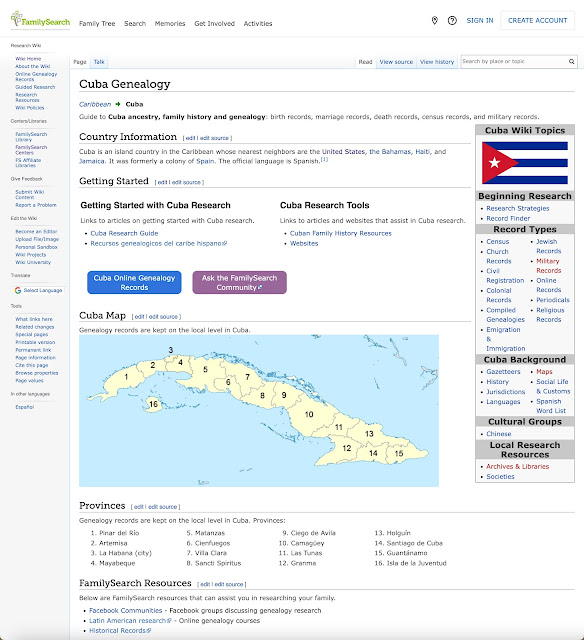If you do all your research in the 20th and 19th Centuries in developed countries, you might have a tendency to forget that paper exists. But the minute you step out of your comfortable cocoon of online records, research becomes much more difficult. Genealogists spend much of their lives looking for records whether online or otherwise. But because so many valuable genealogical records are now found online, newer genealogists have no idea what to do when they can't seem to find a digital copy of some record they think exists.
Amazingly, many of the people I know who are researching their family history have only focused on one website. But let me give an example of what this means. Let's suppose that I want to find a record of my grandfather (probably your great-grandfather or even great-great-grandfather) who was married in Apache County, Arizona in about 1920. Of course, I have a subscription to Ancestry. com, "the largest genealogical website in the world." Why can't I find my grandfather's marriage record?
If we look at the Card Catalog on Ancestry.com, we will see all of the "Collections" on the website.
Currently listing 33,244 collections. On the left-hand side of the screen, we can see a way to "filter" the results of this universal search. We can filter down through North America, United States, Arizona, and then look for Apache County. Arizona marriage records are held in the county. Here is what we see after applying the filters.
From this list, apparently, Ancestry.com does not have any records from Apache County, Arizona. So where would I look for records of my grandfather's marriage? Well, actually, Ancestry does have the marriage records and a specific record for my grandfather. But they are in a collection of marriage records for Arizona: Arizona, U.S., County Marriage Records, 1865-1972. Now, if I had a family tree on Ancestry, which I do, I might already have had a record hint for this marriage record. Yes, I do have a marriage record attached to my grandfather. Here is a screenshot.
The lesson here is that you need to overcome your tendency to rely on the familiar and work through all of the possibilities. But what happens when you run out of online places to look? I would have to say that running out of places to look online would take more time than most of us have left in our lives, so we need to be proactive in learning how to look for records that may not have made their way online yet.
Here you go with more information with links to a large number of records. But ultimately, you need to go directly to Cuba and look for record repositories. Here is what the Cuban National Archives has to say about doing research in the archives.
Foreign researchers must obtain a letter from a sponsoring Cuban institution as well as a special visa for researchers. For researchers wishing to consult pre-1959 documents, contact the National Archives. For post-1959 records, researchers may try to contact the Ministry of Foreign Affairs.
Here is a website that explains what is involved in doing research onsite in Cuba. Archivo Nacional de Cuba.
What this means is that there are still undigitized frontiers of vast amounts of information lurking in the world's archives and libraries and access to these records is not at all available online.
It also means that even if the information is available online, it may be difficult to find. By the way, there are large collections of Cuban records in societies and organizations in Florida, just in case you were wondering where to go rather than travel to Cuba.







No comments:
Post a Comment